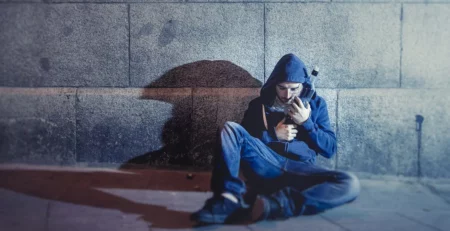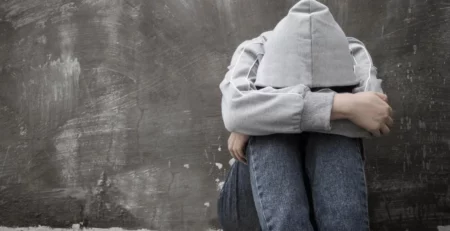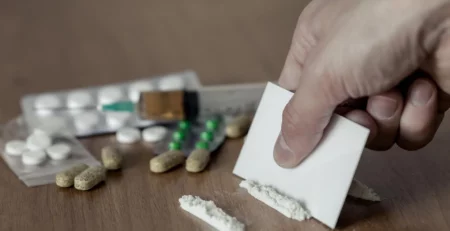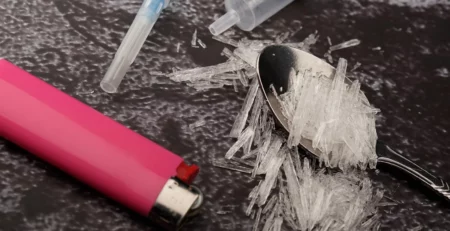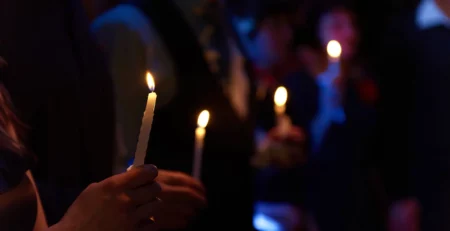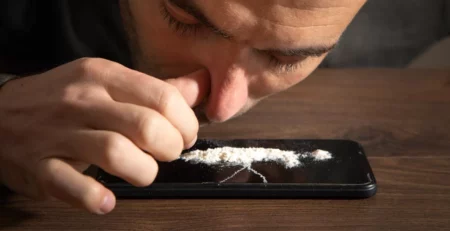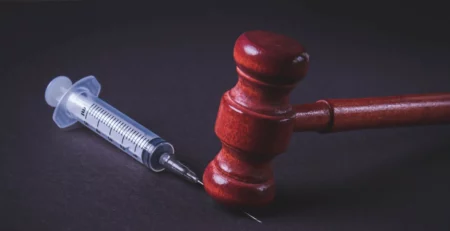How to Help an Alcoholic Sibling
Helping A Family Member with a Drinking Problem Find Treatment
I used to think the word “alcoholic” only applied to people passed out on park benches or getting arrested for the tenth time. I never imagined it would be my younger brother, of all people. The funny, smart, unstoppable kid I grew up with.
But addiction doesn’t care about your background, your ambition, or your place in the family circle. It sneaks in slowly.
And sometimes, by the time you realize how bad things have gotten, it feels like you’re already losing them.
My experience with my brother’s alcohol use wasn’t a straight line. It wasn’t just one “wake up call” or a single tough conversation. It was a long, painful series of attempts to help him find his way back to himself. And somewhere in the middle of that chaos, I had to face some of my own demons too.
I hope you fully read this resource on how to help an alcoholic sibling, and that my experiences can assist you in getting your brother or sister the help they need, ideally from the accredited programs at Icarus Nevada.
When I Realized My Brother Had a Problem

It didn’t happen overnight. At first, it was just a few weird calls late at night. Slurred speech. Excuses. Missed holidays. Then came the real signs. Signs like money disappearing, odd behavior at family gatherings, and stories from mutual friends that didn’t quite add up.
I tried to reason with him, to offer support. I told myself that if I just said the right thing or made the right offer, he’d stop drinking. I believed that if he really loved us, loved our family, me, our parents, he’d get it together. But that’s not how addiction works.
It took a while to understand that my brother wasn’t choosing alcohol over us. He was trapped in a disorder that had rewired his thinking and numbed his pain. I didn’t know it at the time, but what he was going through had a name. It was an alcohol use disorder.
Finding My Own Healing at Icarus Nevada
It’s strange, but the person who ended up in treatment first, was me. Not just for my own ‘partying’ ways, but also for codependency, anxiety, and burnout from years of trying to save someone who didn’t want saving yet.
I hit my emotional bottom and checked into Icarus Nevada, not fully understanding how much I needed to be there.
What I found at Icarus Nevada was more than therapy, it was a roadmap for mental health, self care, and boundaries. It helped me step back from the chaos and finally recognize my own destructive behaviors alongside the enabling behaviors I’d been stuck in.
And eventually, those tools gave me the strength to support my brother in ways that actually mattered.
If you’re dealing with an alcoholic sibling, know this: helping them starts with helping yourself. Icarus Nevada gave me that gift, and I can’t recommend them enough if you’re looking for a path forward. For both you and your loved one.
Get Effective Detox and Rehab Options at Icarus
Why Alcoholism Impacts the Whole Family
Addiction (or substance abuse of alcohol in this case) doesn’t just harm the person drinking. It reshapes the entire family system. Many family members walk on eggshells. Some lash out. Others shut down. But everyone is affected.
I saw it clearly in our house. My mom blamed herself. My dad avoided it. I became the fixer. And the more we avoided talking about it directly, the worse the situation got. We all needed help, but none of us wanted to admit it.
The first step toward change wasn’t confronting my brother. It was talking honestly as a family. Naming the elephant in the room. Creating a united front instead of enabling out of fear.
The Need to Set Boundaries Even When It Hurts

One of the hardest lessons I had to learn was that setting boundaries doesn’t mean abandoning someone. It means loving them without sacrificing yourself. I had to create boundaries that protected my peace, even when it made me feel like a bad sibling.
That looked like not giving him money when he was clearly drinking. It meant not covering for him at work or explaining away his behavior and its negative consequences to other family members. It meant telling him, plainly and lovingly, that I wasn’t going to lie for him anymore.
The thing about boundaries is that they aren’t about control. They’re about honesty, and about protecting your well being while allowing the other person to face the consequences of their actions. It’s not easy, but it’s one of the most effective tools we have.
Peer Support Groups Saved Us
I was resistant at first. I didn’t want to go sit in a circle and talk about my feelings with strangers. But when I finally walked into an Al-Anon meeting, I realized how badly I needed that space.
Hearing other family members talk about their own alcoholic siblings, I finally felt seen. There was no judgment, no preaching, just shared experience and strength. Through support groups like Al-Anon and Alcoholics Anonymous, I found hope and community.
My brother eventually started attending AA too. But long before that, Al-Anon gave me the courage to stay grounded while he spiraled. It reminded me that I wasn’t alone.
Learning the Difference Between Support and Enabling

In the early days, I didn’t know where the line was. I thought I was helping my brother by constantly bailing him out. Both literally and figuratively. I’d cover for him with family, pay his rent when he blew it on booze, drive across town at 3 a.m. just to keep him from sleeping on the street.
It took a lot of pain and guidance from my therapist and Al-Anon. I began to understand the difference between support and enabling. Support is loving someone through their struggle without cushioning the consequences of their actions. Enabling, on the other hand, is trying to fix or buffer their fallout out of fear, guilt, or love twisted by desperation.
When I started stepping back from my “rescuer” role, it felt like abandoning him. But what I didn’t see then was how my constant interference actually shielded him from facing reality. When I stopped rescuing him, he finally had to sit with the results of his drinking. And as hard as that was to witness, it was a turning point.
Get Accredited Treatment Programs at Icarus – Call Now!
Conversations About Drinking That Changed Everything
There were a handful of conversations that shifted the course of our family’s experience with addiction. And not because they were perfectly worded or timed. In fact, most of them were messy and emotional. But what made them matter was honesty and vulnerability.
One I’ll never forget happened at our parents’ dining room table. My brother had just relapsed again after a short stint in outpatient treatment. I didn’t yell. I didn’t guilt-trip him. I just said, “I don’t know how to do this anymore, but I’m not giving up on you.”
That moment cracked something open. Not just in him, but in me, too. We both dropped the defenses. He admitted he was scared. I admitted I was exhausted. And from that raw place, we started talking about real solutions instead of circling around the problem.
Not every conversation was that productive. Some ended in slammed doors or silence. But when I learned to speak from the heart instead of trying to say “the right thing,” something started to shift between us.
What Relapse Taught Me About Recovery

When my brother first agreed to go to treatment, I felt like I could finally breathe again. I thought, “This is it. We’re out of the woods.” But recovery isn’t linear. And relapse is often part of the process.
His first relapse crushed me. I took it personally, like all our effort and hope had been for nothing. I cried in my car, cursed the disease, and for a while, I shut down emotionally.
I had to be open minded about it. Even according to the National Institute of Medicine, “If people stop following their medical treatment plan, they are likely to relapse.” I had to realize it’s sometimes part of the process.
Over time, I started to understand that relapses aren’t a sign of failure. Sometimes it’s a signal. A sign that something needs to be addressed. More structure. More support. More willingness. Or sometimes, just more time.
Relapse taught me that recovery is not about perfection. It’s about persistence. My brother didn’t stop trying. And I didn’t stop believing that he could get there. That’s what made the difference.
The Importance of Language
Something I learned through therapy and support groups was how much the words we use matter. Early on, I used to say things like “Why can’t you just stop?” or “You’re throwing your life away.” I thought I was being honest.
But I didn’t realize how much those words were feeding shame. I didn’t realize how much shame was fueling his drinking.
I started shifting the language I used. I began asking things like, “What do you need right now?” or “What does support look like for you today?”
I learned to speak from “I” instead of “you,” which took the blame out of the conversation and replaced it with connection.
The change wasn’t instant, but it made space for trust to grow. And trust was what we needed most to rebuild a relationship that had been strained by years of pain.
Letting Professionals Do Their Job

One of the most liberating realizations I had was this: I am not my brother’s therapist, doctor, or savior. I am his brother. And that role, on its own, is powerful when I stay in it.
Trying to play every part in his recovery left me drained and resentful. And honestly, it didn’t help him either. What helped him was finding a treatment team that could meet him where he was, with tools and knowledge I didn’t have.
Icarus Nevada became that team. They handled the clinical side while I stepped back into my role as emotional support. That balance was a huge relief. It meant I could be present without being overwhelmed. I could love him without trying to control the outcome.
Small Wins That Meant Everything
There’s this idea in recovery that you celebrate the small wins. And I didn’t get that at first. I was waiting for the big victories. I wanted to see him finishing a 90-day program or hitting one year sober.
But the truth is, some of the most meaningful milestones were the tiniest ones. The first time he called me instead of drinking. The first time he made it through a family dinner without disappearing. The first time he apologized not as a manipulation, but from a place of genuine awareness.
Those were the wins that kept us going. They reminded us that healing was happening, even when it didn’t look dramatic. So if you’re walking through this with a sibling, look for those small moments. Hold onto them. They are the evidence that things are shifting, even when it feels like they’re not.
The Ongoing Work of Repairing the Relationship
Even now, with my brother years into sobriety, we’re still doing the work. There’s still some scar tissue. We still hit walls. But now, we know how to move through them.
We talk more openly than we ever did growing up. We say “I’m sorry” more freely. We don’t take each other for granted. And while I wouldn’t wish the pain of addiction on anyone, I can say this: the relationship we have now is stronger than anything we had before.
It was built in the wreckage. And it’s held together by shared truth and the promise to keep showing up. Showing up for ourselves and for each other.
Understanding What Addiction Really Is
We tend to think of alcohol addiction as a moral failing, but it’s not. It’s a complex substance use disorder, often tied to trauma, mental health issues, and a lifetime of coping through drinking.
That doesn’t excuse the damage it causes, but it does change how we approach it. My brother wasn’t a bad person. He was a person trapped in a bad pattern. And until I understood the science behind addiction, I kept trying to fix the wrong problem.
Evidence-based therapies like cognitive behavioral therapy have shown real promise in helping people recover from alcohol use. My brother eventually entered the same treatment center that used these methods. Icarus Nevada made all the difference.
Treatment Is Not One-Size-Fits-All

There’s no single right way to recover from alcoholism, just like there’s no one way to heal a family. Some people respond to therapy, some to 12-step programs, and some to medical interventions that address withdrawal symptoms and underlying trauma.
My brother needed more than just a rehab center. He needed a team that understood both his physical health and his emotional pain. He found that through professional help at Icarus Nevada, and I’m forever grateful he said yes when the time came.
The Power of Persistence and Compassion
One of the hardest things to accept was that I couldn’t force my brother into treatment. I tried ultimatums. I tried begging. I even tried manipulating him into going.
But what finally worked was a consistent, quiet presence. I kept showing up. I kept reminding him that I loved him, that I believed in him, and that support was always available when he was ready to seek treatment.
I learned to offer support without conditions. To say, “I love you, and I’m here when you’re ready,” instead of “Get help or else.” That shift changed everything.
Dealing with Guilt and Grief
No matter how much support you give, there will be times you feel like you’re failing. You’ll wonder if you did too much, or not enough. You’ll grieve the person’s life they used to have, and the one they could lose.
That grief is real. So is the guilt. But those feelings don’t mean you’ve done something wrong. They mean you care. And caring, even when it’s messy, is what makes the difference between enabling and empowering.
Let Go of Control (But Not of Hope)
Helping an alcoholic sibling means learning to let go without giving up. It means loving them while knowing you can’t control their choices. It means hoping for the best while preparing for the worst.
There were nights I feared I’d get “that call.” The one that no family member wants to answer. And even now, years later, I don’t take my brother’s sobriety for granted. Recovery is a lifelong process, and relapse is always a risk.
But he’s here. He’s alive. He’s working, healing, laughing again. And that’s more than I ever dared hope for during the darkest moments.
Practical Ways You Can Help

If you’re wondering what you can actually do, here are a few things that helped us. Talk openly, without judgment. Join an Al-Anon or other support group. Avoid giving money unless it supports recovery. Learn about addiction treatment options. Practice self care and mental health maintenance. Step back when needed; setting boundaries is key.
Offer support consistently, without strings. Encourage professional help and therapy. Celebrate the small wins, because they matter.
A Word for Other Family Members
To the siblings, the parents, the cousins, the spouses: this journey is just as much yours as it is your loved one’s. Your pain, your confusion, and your anger are all valid. You’re not alone. You’re not crazy. And you’re not helpless. There is hope. There is help.
And it starts with being willing to face the truth, to get uncomfortable, and to ask for guidance. Not just for them, but for you.
Why Your Healing Matters Just as Much
It took me a long time to realize that I deserved to heal, too. I had built my life around crisis, his crisis. I didn’t know who I was without that constant state of worry and problem-solving.
Through therapy, Al-Anon, and changes I made in my own habits, I started to reclaim my life. I began journaling again. I reconnected with old friends. I took solo hikes that had nothing to do with “processing” him. I was just processing me.
That healing gave me something I hadn’t felt in years. I felt clarity. And from that clarity, I was able to be more helpful to my brother without being consumed by him.
Up To 100% of Rehab Costs Covered By Insurance – Call Now!
Get the Help You and Your Sibling Deserve at Icarus Nevada
If someone you love is struggling with addiction, don’t wait for it to get worse. Don’t wait for the serious consequences to hit. Don’t wait for the wake up call to come too late.
Icarus Nevada changed my life, and helped save my brother’s. Their approach to addiction, mental health, and whole-family recovery is unlike anything else I’ve experienced.
If you’re watching someone you love unravel and you don’t know what to do, reach out. Call them.
Get help. Get hope. Because no one should have to face addiction alone.


